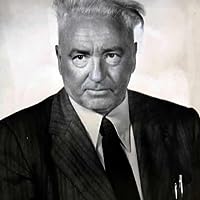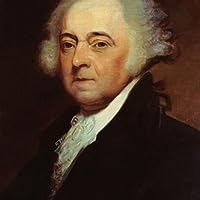French Revolution Quotes
Quotes tagged as "french-revolution"
Showing 1-30 of 206

“Liberty, equality, fraternity, or death; - the last, much the easiest to bestow, O Guillotine!”
― A Tale of Two Cities
― A Tale of Two Cities

“It is the fate of great achievements, born from a way of life that sets truth before security, to be gobbled up by you and excreted in the form of shit. For centuries great, brave, lonely men have been telling you what to do. Time and again you have corrupted, diminished and demolished their teachings; time and again you have been captivated by their weakest points, taken not the great truth, but some trifling error as your guiding principal. This, little man, is what you have done with Christianity, with the doctrine of sovereign people, with socialism, with everything you touch. Why, you ask, do you do this? I don't believe you really want an answer. When you hear the truth you'll cry bloody murder, or commit it. … You had your choice between soaring to superhuman heights with Nietzsche and sinking into subhuman depths with Hitler. You shouted Heil! Heil! and chose the subhuman. You had the choice between Lenin's truly democratic constitution and Stalin's dictatorship. You chose Stalin's dictatorship. You had your choice between Freud's elucidation of the sexual core of your psychic disorders and his theory of cultural adaptation. You dropped the theory of sexuality and chose his theory of cultural adaptation, which left you hanging in mid-air. You had your choice between Jesus and his majestic simplicity and Paul with his celibacy for priests and life-long compulsory marriage for yourself. You chose the celibacy and compulsory marriage and forgot the simplicity of Jesus' mother, who bore her child for love and love alone. You had your choice between Marx's insight into the productivity of your living labor power, which alone creates the value of commodities and the idea of the state. You forgot the living energy of your labor and chose the idea of the state. In the French Revolution, you had your choice between the cruel Robespierre and the great Danton. You chose cruelty and sent greatness and goodness to the guillotine. In Germany you had your choice between Goring and Himmler on the one hand and Liebknecht, Landau, and Muhsam on the other. You made Himmler your police chief and murdered your great friends. You had your choice between Julius Streicher and Walter Rathenau. You murdered Rathenau. You had your choice between Lodge and Wilson. You murdered Wilson. You had your choice between the cruel Inquisition and Galileo's truth. You tortured and humiliated the great Galileo, from whose inventions you are still benefiting, and now, in the twentieth century, you have brought the methods of the Inquisition to a new flowering. … Every one of your acts of smallness and meanness throws light on the boundless wretchedness of the human animal. 'Why so tragic?' you ask. 'Do you feel responsible for all evil?' With remarks like that you condemn yourself. If, little man among millions, you were to shoulder the barest fraction of your responsibility, the world would be a very different place. Your great friends wouldn't perish, struck down by your smallness.”
― Listen, Little Man!
― Listen, Little Man!

“Little by little, the old world crumbled, and not once did the king imagine that some of the pieces might fall on him.”
― Revolution
― Revolution

“I have always been interested in this man. My father had a set of Tom Paine's books on the shelf at home. I must have opened the covers about the time I was 13. And I can still remember the flash of enlightenment which shone from his pages. It was a revelation, indeed, to encounter his views on political and religious matters, so different from the views of many people around us. Of course I did not understand him very well, but his sincerity and ardor made an impression upon me that nothing has ever served to lessen.
I have heard it said that Paine borrowed from Montesquieu and Rousseau. Maybe he had read them both and learned something from each. I do not know. But I doubt that Paine ever borrowed a line from any man...
Many a person who could not comprehend Rousseau, and would be puzzled by Montesquieu, could understand Paine as an open book. He wrote with a clarity, a sharpness of outline and exactness of speech that even a schoolboy should be able to grasp. There is nothing false, little that is subtle, and an impressive lack of the negative in Paine. He literally cried to his reader for a comprehending hour, and then filled that hour with such sagacious reasoning as we find surpassed nowhere else in American letters - seldom in any school of writing.
Paine would have been the last to look upon himself as a man of letters. Liberty was the dear companion of his heart; truth in all things his object.
...we, perhaps, remember him best for his declaration:
'The world is my country; to do good my religion.'
Again we see the spontaneous genius at work in 'The Rights of Man', and that genius busy at his favorite task - liberty. Written hurriedly and in the heat of controversy, 'The Rights of Man' yet compares favorably with classical models, and in some places rises to vaulting heights. Its appearance outmatched events attending Burke's effort in his 'Reflections'.
Instantly the English public caught hold of this new contribution. It was more than a defense of liberty; it was a world declaration of what Paine had declared before in the Colonies. His reasoning was so cogent, his command of the subject so broad, that his legion of enemies found it hard to answer him.
'Tom Paine is quite right,' said Pitt, the Prime Minister, 'but if I were to encourage his views we should have a bloody revolution.'
Here we see the progressive quality of Paine's genius at its best. 'The Rights of Man' amplified and reasserted what already had been said in 'Common Sense', with now a greater force and the power of a maturing mind. Just when Paine was at the height of his renown, an indictment for treason confronted him. About the same time he was elected a member of the Revolutionary Assembly and escaped to France.
So little did he know of the French tongue that addresses to his constituents had to be translated by an interpreter. But he sat in the assembly. Shrinking from the guillotine, he encountered Robespierre's enmity, and presently found himself in prison, facing that dread instrument.
But his imprisonment was fertile. Already he had written the first part of 'The Age of Reason' and now turned his time to the latter part.
Presently his second escape cheated Robespierre of vengeance, and in the course of events 'The Age of Reason' appeared. Instantly it became a source of contention which still endures. Paine returned to the United States a little broken, and went to live at his home in New Rochelle - a public gift. Many of his old companions in the struggle for liberty avoided him, and he was publicly condemned by the unthinking.
{The Philosophy of Paine, June 7, 1925}”
― Diary and Sundry Observations of Thomas Alva Edison
I have heard it said that Paine borrowed from Montesquieu and Rousseau. Maybe he had read them both and learned something from each. I do not know. But I doubt that Paine ever borrowed a line from any man...
Many a person who could not comprehend Rousseau, and would be puzzled by Montesquieu, could understand Paine as an open book. He wrote with a clarity, a sharpness of outline and exactness of speech that even a schoolboy should be able to grasp. There is nothing false, little that is subtle, and an impressive lack of the negative in Paine. He literally cried to his reader for a comprehending hour, and then filled that hour with such sagacious reasoning as we find surpassed nowhere else in American letters - seldom in any school of writing.
Paine would have been the last to look upon himself as a man of letters. Liberty was the dear companion of his heart; truth in all things his object.
...we, perhaps, remember him best for his declaration:
'The world is my country; to do good my religion.'
Again we see the spontaneous genius at work in 'The Rights of Man', and that genius busy at his favorite task - liberty. Written hurriedly and in the heat of controversy, 'The Rights of Man' yet compares favorably with classical models, and in some places rises to vaulting heights. Its appearance outmatched events attending Burke's effort in his 'Reflections'.
Instantly the English public caught hold of this new contribution. It was more than a defense of liberty; it was a world declaration of what Paine had declared before in the Colonies. His reasoning was so cogent, his command of the subject so broad, that his legion of enemies found it hard to answer him.
'Tom Paine is quite right,' said Pitt, the Prime Minister, 'but if I were to encourage his views we should have a bloody revolution.'
Here we see the progressive quality of Paine's genius at its best. 'The Rights of Man' amplified and reasserted what already had been said in 'Common Sense', with now a greater force and the power of a maturing mind. Just when Paine was at the height of his renown, an indictment for treason confronted him. About the same time he was elected a member of the Revolutionary Assembly and escaped to France.
So little did he know of the French tongue that addresses to his constituents had to be translated by an interpreter. But he sat in the assembly. Shrinking from the guillotine, he encountered Robespierre's enmity, and presently found himself in prison, facing that dread instrument.
But his imprisonment was fertile. Already he had written the first part of 'The Age of Reason' and now turned his time to the latter part.
Presently his second escape cheated Robespierre of vengeance, and in the course of events 'The Age of Reason' appeared. Instantly it became a source of contention which still endures. Paine returned to the United States a little broken, and went to live at his home in New Rochelle - a public gift. Many of his old companions in the struggle for liberty avoided him, and he was publicly condemned by the unthinking.
{The Philosophy of Paine, June 7, 1925}”
― Diary and Sundry Observations of Thomas Alva Edison

“Peoples do not judge in the same way as courts of law; they do not hand down sentences, they throw thunderbolts; they do not condemn kings, they drop them back into the void; and this justice is worth just as much as that of the courts.”
―
―

“Because beautiful things never last. Not roses nor snow… And not fireworks, either”
― Revolution
― Revolution

“This society [Jesuits] has been a greater calamity to mankind than the French Revolution, or Napoleon's despotism or ideology. It has obstructed the progress of reformation and the improvement of the human mind in society much longer and more fatally.
{Letter to Thomas Jefferson, November 4, 1816. Adams wrote an anonymous 4 volume work on the destructive history of the Jesuits}”
― The Adams-Jefferson Letters: The Complete Correspondence Between Thomas Jefferson & Abigail & John Adams
{Letter to Thomas Jefferson, November 4, 1816. Adams wrote an anonymous 4 volume work on the destructive history of the Jesuits}”
― The Adams-Jefferson Letters: The Complete Correspondence Between Thomas Jefferson & Abigail & John Adams

“A sensibility that wails almost exclusively over the enemies of liberty seems suspect to me. Stop shaking the tyrant's bloody robe in my face, or I will believe that you wish to put Rome in chains.”
―
―

“Had you but seen it, I promise you, your high-minded principles would have melted like candle wax. Never would you have wished such beauty away.”
― Revolution
― Revolution

“The matter on which I judge people is their willingness, or ability, to handle contradiction. Thus Paine was better than Burke when it came to the principle of the French revolution, but Burke did and said magnificent things when it came to Ireland, India and America. One of them was in some ways a revolutionary conservative and the other was a conservative revolutionary. It's important to try and contain multitudes. One of my influences was Dr Israel Shahak, a tremendously brave Israeli humanist who had no faith in collectivist change but took a Spinozist line on the importance of individuals. Gore Vidal's admirers, of whom I used to be one and to some extent remain one, hardly notice that his essential critique of America is based on Lindbergh and 'America First'—the most conservative position available. The only real radicalism in our time will come as it always has—from people who insist on thinking for themselves and who reject party-mindedness.”
― Christopher Hitchens and His Critics: Terror, Iraq, and the Left
― Christopher Hitchens and His Critics: Terror, Iraq, and the Left

“Victor Hugo continues to be popular today not because of his multivolume works, which people may never have time or patience to read, but rather because of his unique experiences, his political activities and his immense influence on French history.”
―
―

“Victor Hugo n’est pas uniquement reconnu pour ses œuvres, cet intellectuel engagé et influent est reconnu surtout pour sa carrière politique très importante et son influence énorme sur l’histoire de la France.”
―
―

“To the Jacobins of this epoch [the French Revolution], as well as to those of our times, this popular entity constitutes a superior personality possessing attributes peculiar to the gods of never having to answer for their actions and never making a mistake. Their wishes must be humbly acceded to. The people may kill, burn, ravage, commit the most frightening cruelties, glorify their hero today and throw him into the gutter tomorrow, it is all the same; the politicians will not cease to vaunt the people's virtues and to bow to their every decision.”
― The Psychology of Revolution
― The Psychology of Revolution

“Just think, she said to herself. I could be living on the Right Bank. I could be married to a senior clerk at the Treasury. I could be sitting with my feet up, embroidering a linen handkerchief with a rambling-rose design. Instead I'm on the rue des Cordeliers in pursuit of a baguette, with a three-inch blade for comfort.”
― A Place of Greater Safety
― A Place of Greater Safety

“...more men and women were slaughtered in a couple of weeks of the terror of the atheistic French Revolution than in a century of the Inquisition.”
― Why Catholics are Right
― Why Catholics are Right
“A collective insanity seemed to have seized the nation and turned them into something worse than beasts. The princess de Lamballe, Marie Antoinette's intimate friend, was literally torn to pieces; her head, breasts, and pudenda were paraded on pikes before the windows of the Temple, where the royal family was imprisoned, while a man boasted drunkenly at a cafe that he had eaten the princess' heart, which he probably had.”
― The Age of Napoleon
― The Age of Napoleon

“Did you know there are three palaces at Versailles? How many does one family need when thousands have no homes? I don’t approve of what those women did, but I understand why they did it. Perhaps one day, I’ll have to do something like it—to feed my son.”
― Her Own Legacy
― Her Own Legacy

“Bakers can’t bake bread because they can’t get flour. So why do people burn wheat fields and kill bakers when it’s their fault there’s no flour?”
― Her Own Legacy
― Her Own Legacy

“Jacobinism, born amidst the revolutionary fervor of 1789, harbored but a singular aspiration: the complete and total eradication of Christendom. When we behold the world through such a prism in the present day, it becomes evident that we are in the midst of an exterminating conflict that bears the hallmarks of nothing less than a total war.”
―
―

“nder the guidance of her Christian pastors, she entertained herself, besides, with such humane achievements as sentencing a youth to have his hands cut off, his tongue torn out with pincers, and his body burned alive, because he had not kneeled down in the rain to do honour to a dirty procession of monks which passed within his view, at a distance of some fifty or sixty yards. It is likely enough that, rooted in the woods of France and Norway, there were growing trees, when that sufferer was put to death, already marked by the Woodman, Fate, to come down and be sawn into boards, to make a certain movable framework with a sack and a knife in it, terrible in history.”
― A Tale of Two Cities
― A Tale of Two Cities

“Under the guidance of her Christian pastors, she entertained herself, besides, with such humane achievements as sentencing a youth to have his hands cut off, his tongue torn out with pincers, and his body burned alive, because he had not kneeled down in the rain to do honour to a dirty procession of monks which passed within his view, at a distance of some fifty or sixty yards. It is likely enough that, rooted in the woods of France and Norway, there were growing trees, when that sufferer was put to death, already marked by the Woodman, Fate, to come down and be sawn into boards, to make a certain movable framework with a sack and a knife in it, terrible in history.”
― A Tale of Two Cities
― A Tale of Two Cities
“These buildings and these books, these expats and their expectations, all had an impact. The influence of France turned the theories of the French Enlightenment into something more than just ideas in Russia - they became physical. They became revolution. And at the heart of that revolution lay philosophies about the freedom of the individual, one where the imperial shackles of social, political and religious dogma were seen clearly and where the call for them to be shaken off was heard loudly.”
― The Price of Paradise
― The Price of Paradise

“It would mean Morny had no loyalty at all to Louis XVIII or the constitutional monarchy or anything else he has swon to defend.”
― A Lark's Conceit
― A Lark's Conceit

“You are a monster of selfishness and greed, bearing no loyalty to anyone but yourself, and you prance across the stage and preen as if ennobled by your inconstancy. You are the rot at the heart of France, and it must be rooted out for the sake of the country.”
― A Lark's Conceit
― A Lark's Conceit

“served as a catalyst for later, more radical, and more successful insurrections”
― Avengers of the New World: The Story of the Haitian Revolution
― Avengers of the New World: The Story of the Haitian Revolution

“What spoils the French Revolution for me is that it all happens on stage, that its promoters are born actors, that the guillotine is merely a decor. The history of France, as a whole, seems a bespoke history, an acted history: everything in it is perfect from the theatrical point of view. It is a performance, a series of gestures and events which are watched rather than suffered, a spectacle that takes ten centuries to put on. Whence the impression of frivolity which even the Terror affords, seen from a distance.”
― The Trouble With Being Born
― The Trouble With Being Born

“Do you think that Mr Pitt really cares whether we have Louis executed?’
‘Personally? Oh no, no one gives a damn for Louis. But they think it is a bad precedent to cut off monarch’s heads.’
‘It was the English who set the precedent.’
‘They try to forget that.”
― A Place of Greater Safety
‘Personally? Oh no, no one gives a damn for Louis. But they think it is a bad precedent to cut off monarch’s heads.’
‘It was the English who set the precedent.’
‘They try to forget that.”
― A Place of Greater Safety

“Even his genius is without a constitution. It is a genius at random, and not a genius constituted. But he must say something.”
― The Rights of Man
― The Rights of Man
All Quotes
|
My Quotes
|
Add A Quote
Browse By Tag
- Love Quotes 97k
- Life Quotes 75.5k
- Inspirational Quotes 72.5k
- Humor Quotes 43.5k
- Philosophy Quotes 29.5k
- Inspirational Quotes Quotes 27k
- God Quotes 26k
- Truth Quotes 23.5k
- Wisdom Quotes 23.5k
- Romance Quotes 23k
- Poetry Quotes 22k
- Death Quotes 20k
- Happiness Quotes 18.5k
- Life Lessons Quotes 18.5k
- Hope Quotes 18k
- Faith Quotes 18k
- Quotes Quotes 16.5k
- Inspiration Quotes 16.5k
- Spirituality Quotes 15k
- Religion Quotes 15k
- Motivational Quotes 15k
- Writing Quotes 14.5k
- Relationships Quotes 14.5k
- Life Quotes Quotes 14k
- Love Quotes Quotes 13.5k
- Success Quotes 13.5k
- Time Quotes 12.5k
- Motivation Quotes 12k
- Science Quotes 11.5k
- Knowledge Quotes 11k

